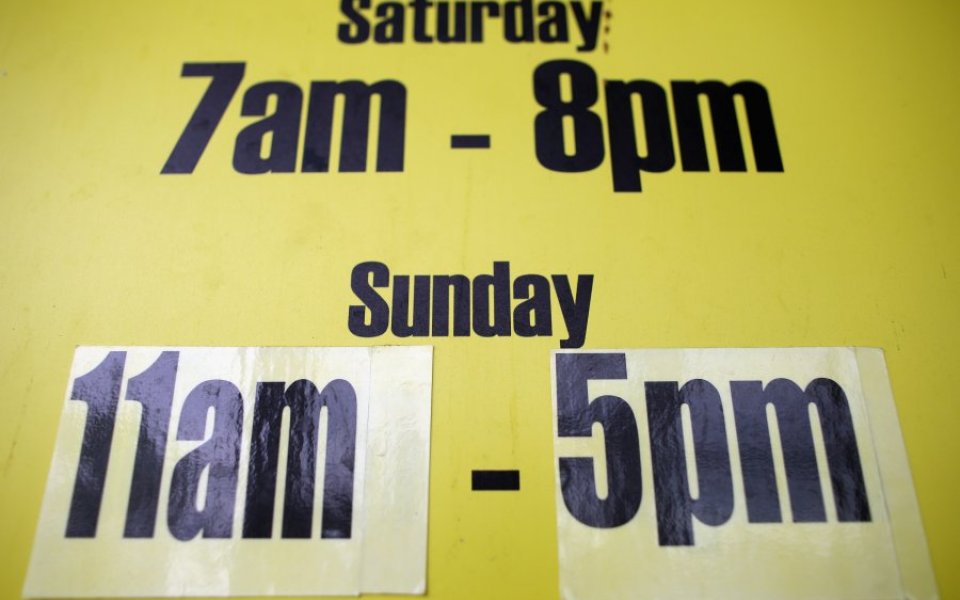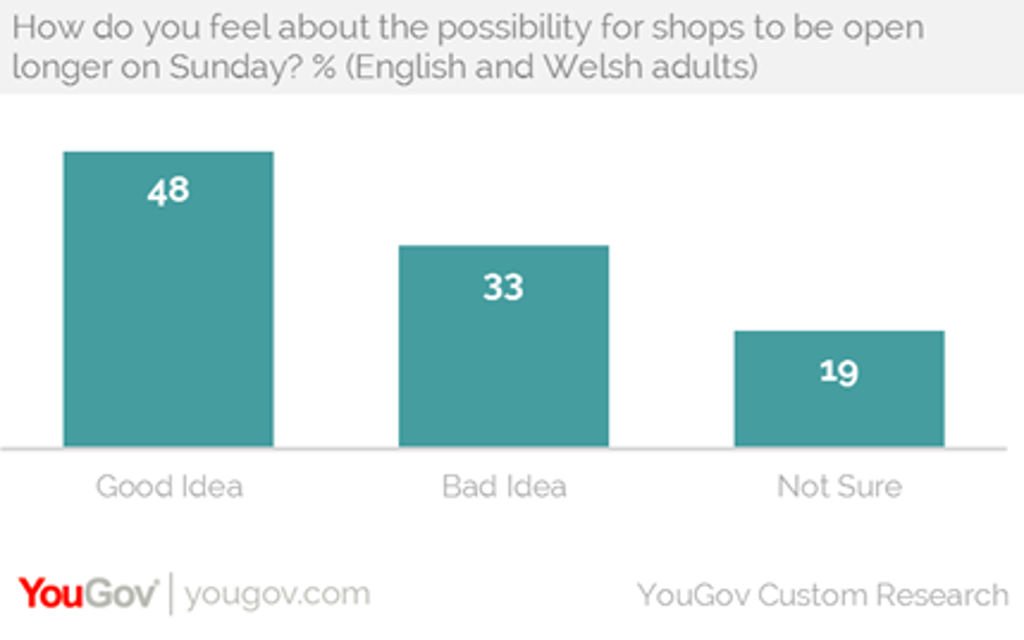Sunday trading gets our vote – but with caveats, YouGov data shows

As the government announces that it will be pressing ahead with plans to allow councils to extend trading hours on Sundays, YouGov data shows something of a story of contradiction in public opinion on the issue. The public generally supports the change but are wary about the impact on employees and family life.
Proponents of the change have argued that as shopping habits change, so too must retailers in order to better compete for trade. Our data indicates support for the change in opening times. Just less than half (48 per cent) believe the changes are either a fairly good or very good idea. This compares to 33 per cent that think it is either a fairly bad or very bad proposal.
Critics have consistently argued that the changes will be damaging to workers and smaller shops, and that there will a form of erosion in the quality of family life. 58 per cent of respondents would be concerned that smaller stores would lose out if larger stores are open longer, as against 15 per cent that would not be.

As for the workers themselves, 54 per cent think they would lose out, against 19 per cent that said they wouldn’t. Looking at home life specifically, a plurality (48 per cent vs. 27 per cent) said longer opening hours would be detrimental to family life.
And what does this all mean for retailers themselves? Our data underlines the opportunity the change provides – especially to the large supermarkets. A fifth (21per cent) of respondents said that they would do more shopping on a Sunday if the changes were implemented, while 12 per cent said they would shop at a different time on a Sunday. Almost four in ten (38 per cent) said that they would like supermarkets to be open longer, ahead of large shopping malls (27 per cent).
It’s clear that consumers do see the advantages of the proposed changes from a personal perspective, but are nervous about how workers and smaller shops will be impacted. Could it be that the high street is about to undergo one of its most dramatic periods of change in a generation?